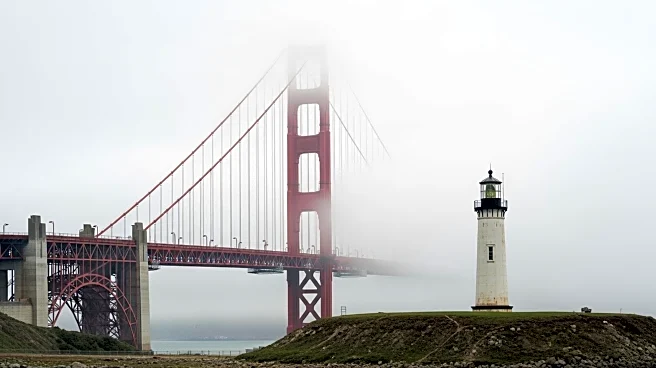What's Happening?
President Trump has threatened to deploy National Guard troops to San Francisco, citing crime concerns as the justification. However, local and state leaders, including Mayor Daniel Lurie, have pushed back against this claim, arguing that crime rates
are actually down and the city is recovering from its pandemic challenges. The President has previously deployed the National Guard to other cities like Washington, D.C., and Memphis, citing similar reasons. In San Francisco, the threat has been met with confusion and concern from residents and local officials, who argue that the city is safe and does not require federal intervention.
Why It's Important?
The potential deployment of the National Guard to San Francisco highlights ongoing tensions between federal and local authorities, particularly in Democratic-led cities. The move could have significant implications for local governance and public safety strategies. Critics argue that such deployments are politically motivated and could lead to increased unrest. The situation underscores the broader national debate over federal intervention in local matters, especially in cities that have been focal points of political and social issues. The response from San Francisco's leaders reflects a broader resistance to federal overreach and a commitment to local autonomy.
What's Next?
California's state government, led by Governor Gavin Newsom, has pledged to resist any federal deployment of the National Guard. Legal challenges are expected, similar to those seen in other cities like Chicago and Portland, where lawsuits have successfully blocked troop deployments. The situation in San Francisco will likely continue to evolve as local leaders work to address public safety concerns without federal intervention. The outcome could set a precedent for how similar situations are handled in other cities across the United States.















